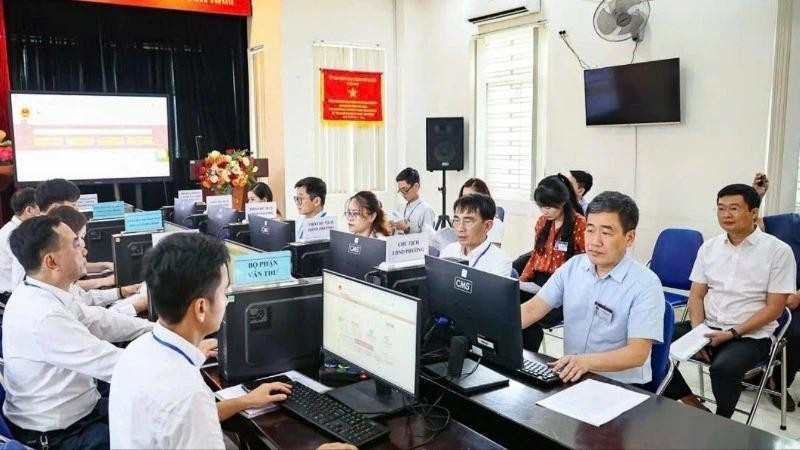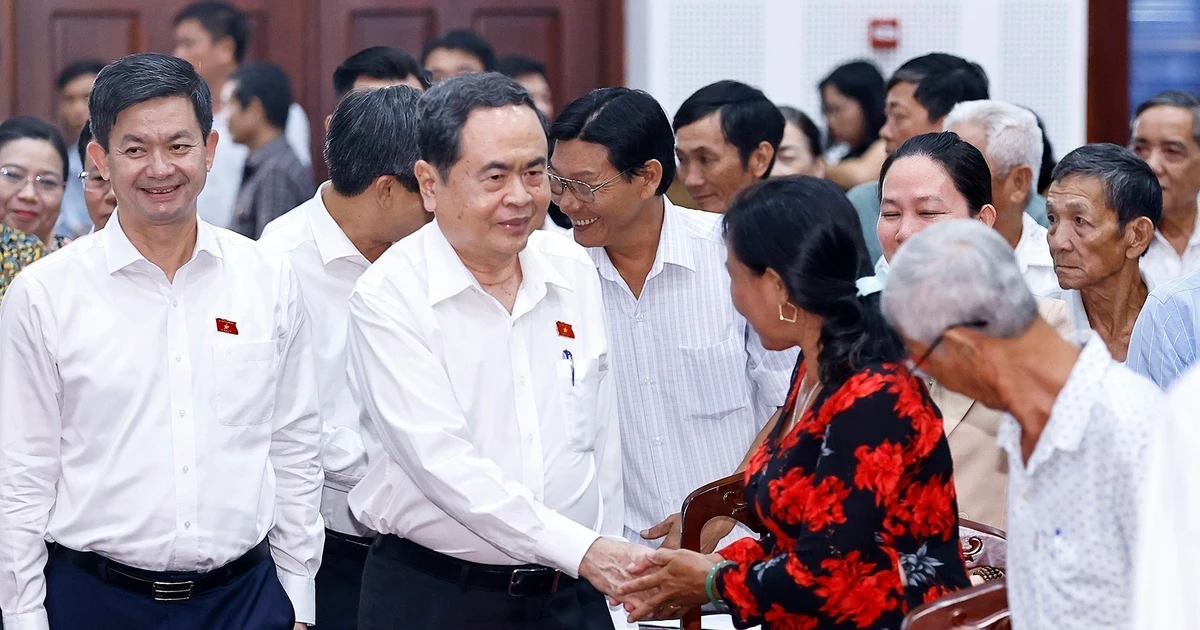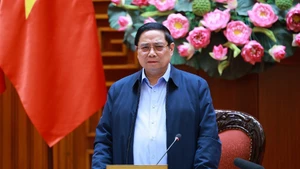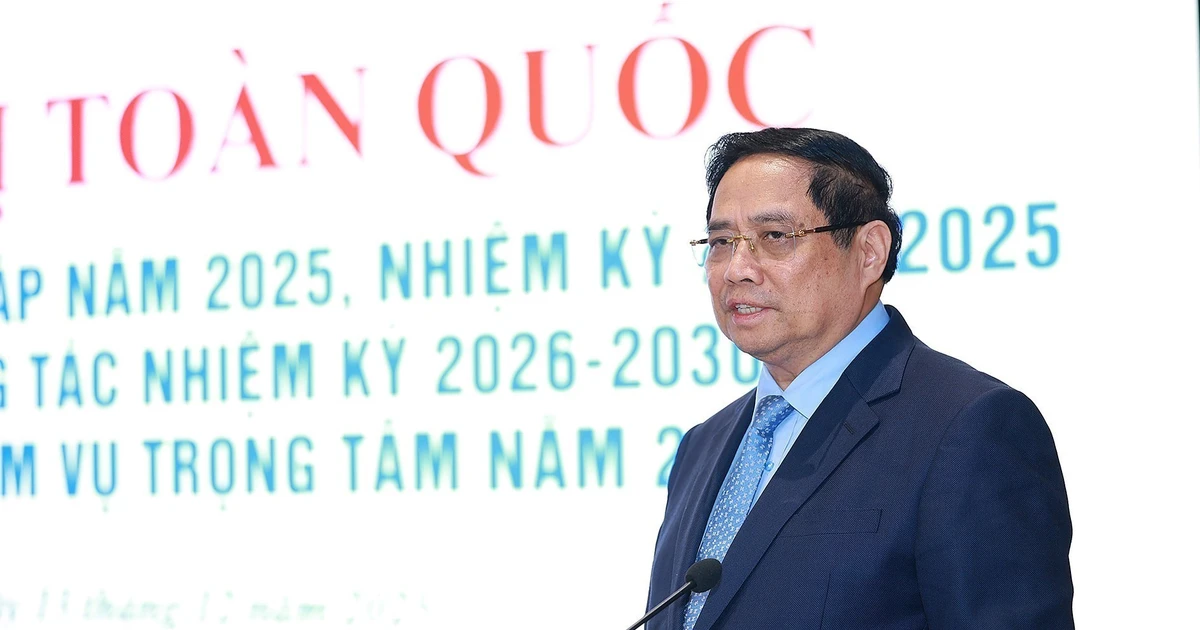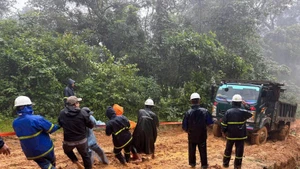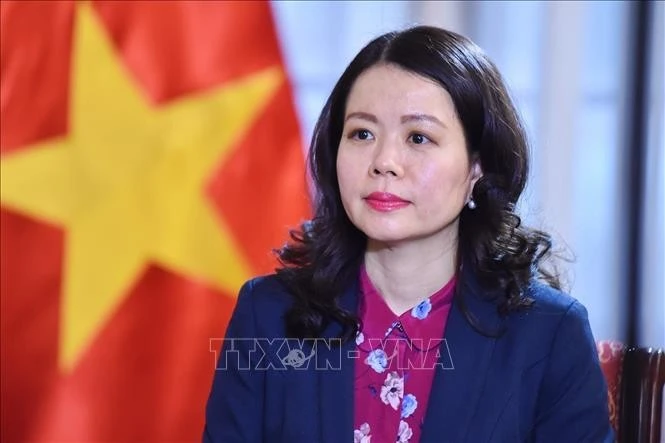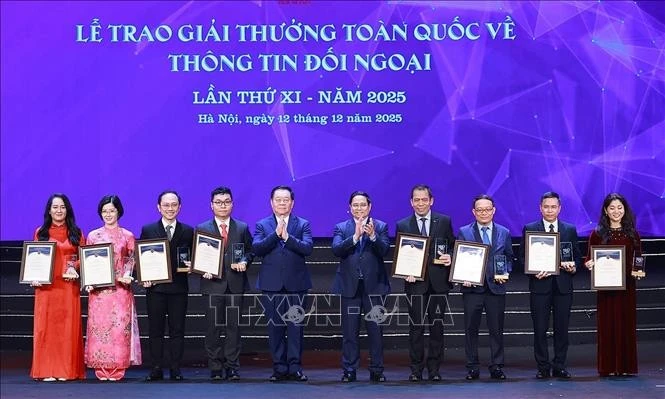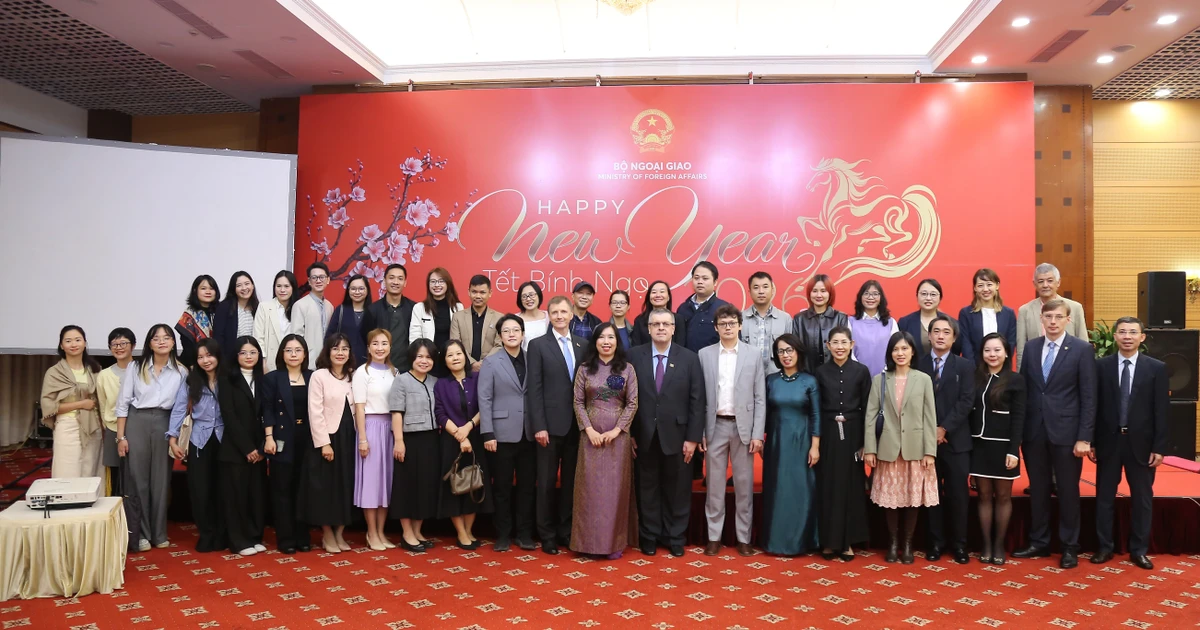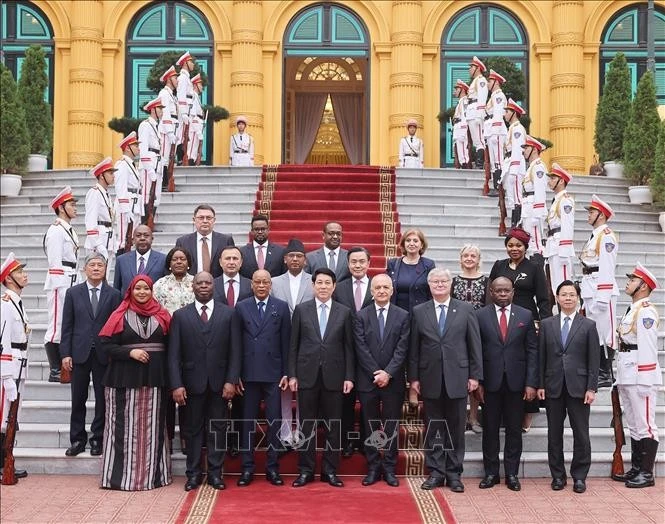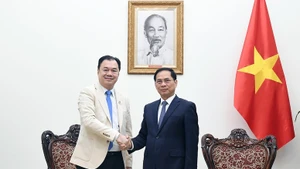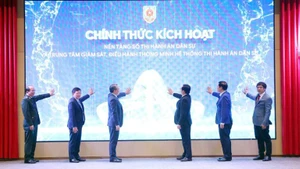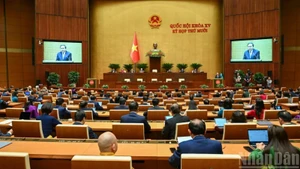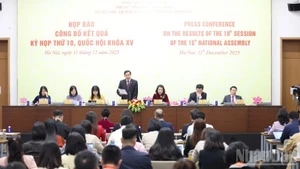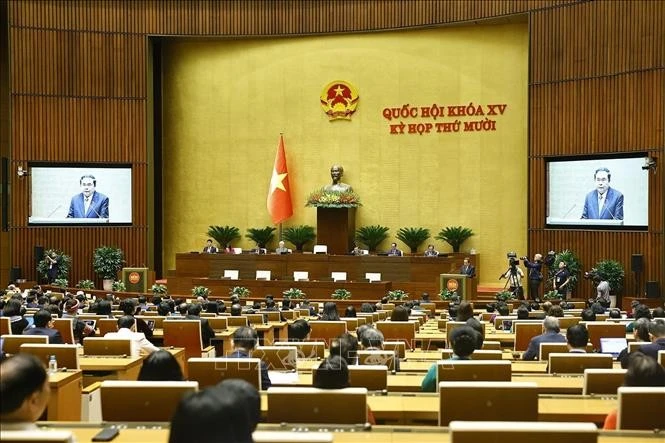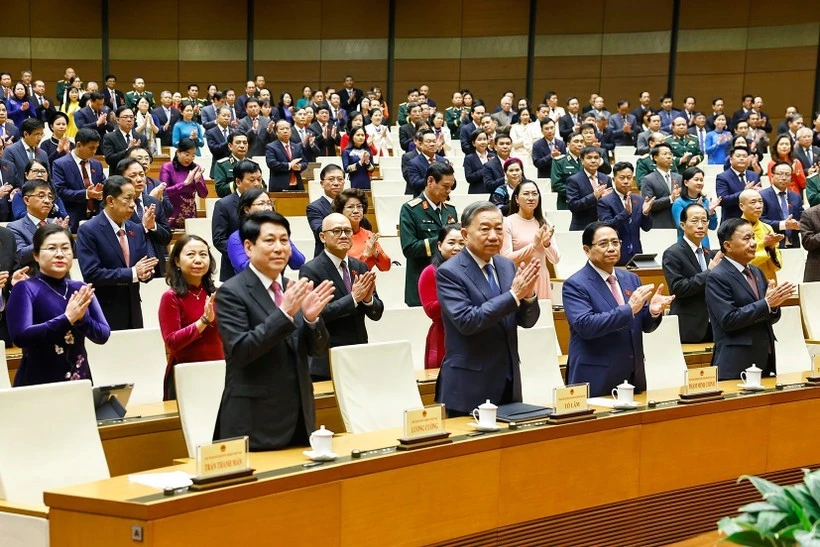In order to ensure unity, synchronisation, and interconnectedness throughout the political system from central to local levels, in alignment with the two-tier local government model, the Central Steering Committee on the Development of Science and Technology, Innovation, and Digital Transformation (Central Steering Committee) has issued Plan No. 02-KH/BCĐTW on promoting digital transformation, one that is interconnected, synchronised, swift, and effective to meet the requirements of restructuring the political system’s apparatus.
With a clearly defined, scientific mechanism for implementation, supervision, and reporting—assigning responsibility to specialised working groups and especially to the heads of agencies—Plan No. 02 represents a comprehensive reform strategy, requiring the entire political system to move in a synchronised, consistent, and determined manner, effecting qualitative change in the execution of public duties.
Unified action from central to grassroots levels
The Central Steering Committee affirms that digital transformation entails a comprehensive overhaul of working methods and a restructuring of processes, decentralisation, and delegation of authority, all closely linked with technological application. The requirement is for the entire political system, from central to local levels, to demonstrate high levels of determination, great effort, and unified, urgent, and immediate action.
Tasks, especially in the initial phase, must yield concrete, measurable outcomes and be completed on schedule; strict compliance with all security and information safety regulations is essential. The ultimate goal is to improve the effectiveness of the government apparatus and deliver better services to citizens and businesses. Digital transformation results will be a key criterion in the assessment, planning, and appointment of leaders and managers at all levels in the new phase.
According to Plan No. 02, there are eight groups of key tasks and solutions for digital transformation, divided into two phases: the urgent phase (until June 30, 2025), focusing on immediately removing institutional, infrastructure, and data bottlenecks to ensure the smooth, continuous, and effective operation of the two-level local government system from July 1 onwards; and the breakthrough phase (until December 31, 2025), aimed at finalising shared platforms, standardising and interconnecting major databases, and substantially improving the quality of online public services.
Plan No. 02 includes eight groups of key digital transformation tasks and solutions, divided into two phases.
Pham Gia Tuc, member of the Party Central Committee and Deputy Chief of the Office of the Party Central Committee, stated that the breakthrough aspect of Plan No. 02 is its promotion of comprehensive, synchronised movement across all sectors within the political system. Each sector is being assigned specific tasks, politically accountable to the Party and the people, jointly constructing a unified national digital space. Based on the principle of "One unified system – one single data set – one seamless service", the operating model revolves around three main streams: leadership, reporting, and coordination.
Within this framework, the Central Steering Committee acts as the overall commander. The Government and ministries issue standards and regulations and bear responsibility for national data governance. Provincial-level Steering Committees are fully responsible for local implementation. The commune level is the execution level—the frontline serving the people—ensuring seamless delivery of public services and generating new data that is “accurate – sufficient – clean – live – unified – commonly used” from July 1, 2025. Citizens and businesses interact with the entire system through a single gateway: the National Public Service Portal and the VNeID application.
To concretise the implementation plan, the Steering Committee has issued four lists of specific tasks for the Party bodies; ministries and sectors; the Viet Nam Fatherland Front and political-social organisations; as well as local authorities. Each task clearly states the content, responsible agencies, coordinating bodies, and deadlines. Six specialised working groups, led by senior officials from the Steering Committee, are assigned to monitor designated areas and fields, directly engage, provide guidance, resolve local challenges, and regularly report to the Standing Office. The central command and control centre is located at the Office of the Party Central Committee and operates 24/7, staffed by a team of 40 dedicated personnel, always ready to ensure uninterrupted system operations.
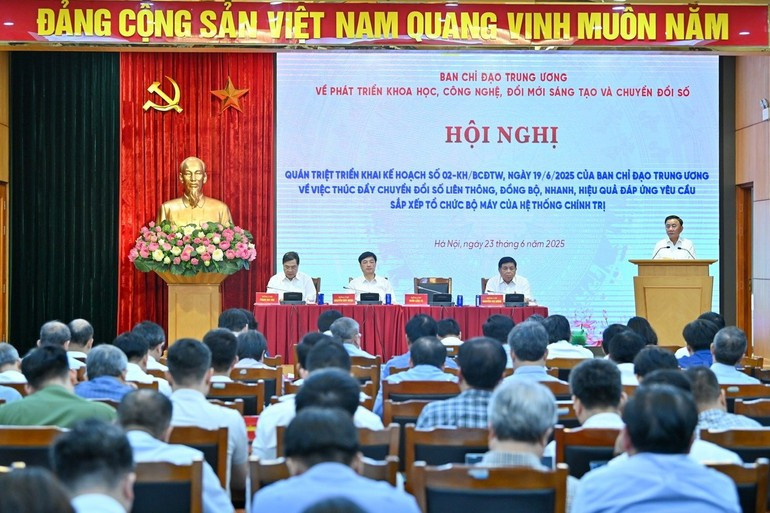
Prepared for a historic turning point
In readiness for operating the two-tier local government apparatus, local Party committees and organisations have vigorously and urgently implemented tasks in line with the conclusions of the Politburo and the Secretariat. Fundamental preparations have been progressing on schedule. In Ho Chi Minh City, after piloting the commune-level government model in all 102 newly established wards and communes, initial results were positive. According to the city’s leadership, this was due to the extraordinary efforts of the entire political system, with assigned personnel working at full capacity.
As of now, inspections show all matters remain under control. The "key" to fulfilling tasks within such a short timeframe lies in concentrating all resources, prioritising tasks, maximising existing infrastructure, promptly interconnecting digital data, and securing the full support and participation of the political system, the public, and enterprises—ensuring nothing is overlooked, no task delayed or left incomplete.
As of now, inspections show all matters remain under control.
Ha Minh Hai, Head of the Organisation Commission of the Ha Noi Party Committee, stated that in preparation for the July 1, 2025 milestone, the Standing Committee of the Ha Noi Party Committee has approved the apparatus and personnel scheme for 126 new communes; conducted six consecutive days of training on the two-tier local government model, covering operational mechanisms, regulations, processes, and human resources.
The city has established 11 working groups led by municipal leaders and department heads, providing direct guidance in the 126 new communes; the Public Administrative Centre is assigned to offer support and promptly handle arising situations. The immediate goal, in the urgent phase until June 30, is to review and implement all tasks to ensure the planned timeline is met.
In newly merged provinces such as the new Ninh Binh, several bottlenecks remain, with many full-process online public services still needing improvement. Additionally, each province has unique circumstances, lacking a unified plan for digital data transition. The information technology workforce is limited, mostly working on practical experience without formal training in modern system administration. In Lai Chau, the province has completed installation, configuration, account creation, and established seamless connectivity from the central level to communes and vice versa, ensuring equipment readiness for all 38 commune-level Party Committees to commence operations from July 1.
Nevertheless, despite political efforts to meet organisational restructuring requirements, the province faces considerable challenges in its human resource capacity, potential, and technological expertise. There are still 49 hamlets without mobile broadband coverage, the rate of full-process online public services remains low at 58.8%, and the quality of the digital workforce and the share of the digital economy are both underwhelming.
Besides issues of digital human resources and infrastructure, an area of particular concern for local Party committees is funding and a lack of facilities. According to Minister of Finance Nguyen Van Thang, difficulties and requests from localities have been compiled and reported to the Government. To ensure physical infrastructure during the restructuring of administrative units, on June 22, 2025, the Prime Minister signed Official Telegram No. 95/CĐ-TTg directing the rapid, decisive, and timely implementation of digital transformation and IT tasks to support apparatus restructuring in accordance with the timelines in Plan No. 02.
In the event of funding difficulties, provincial People's Committees must promptly report to the Ministry of Finance for immediate resolution on June 23, 2025. The Ministry of Finance, in coordination with the relevant agencies, is to reach consensus on solutions and promptly address obstacles, ensuring progress. The Prime Minister has assigned Deputy Prime Minister Ho Duc Phoc to directly handle difficulties within his authority in order to prevent bottlenecks and delays.
With the countdown now on until the official announcement of resolutions and decisions by central and local authorities on the merger of administrative units, the establishment of Party organisations, appointment of Party committees, People’s Councils, People’s Committees, and Fatherland Front bodies at provincial, municipal, and grassroots levels on June 30, 2025—so that operations can officially commence from July 1, 2025—time is running short.
To ensure the two-level local government system operates smoothly, effectively, and without interruption, the Party Secretariat recently issued Conclusion No. 170-KL/TW on reviewing the preparations for the official announcement. The Secretariat requires the Standing Office of the Steering Committee for Resolution No. 57-NQ/TW monitor, urge, and guide ministries, sectors, and localities to focus on implementing Plan No. 02—especially priority and urgent tasks up to July 1, 2025—ensuring the delivery of online public services to citizens and enterprises as required; and instructs all relevant agencies to be on alert and ready to handle any technical issues arising during implementation.
